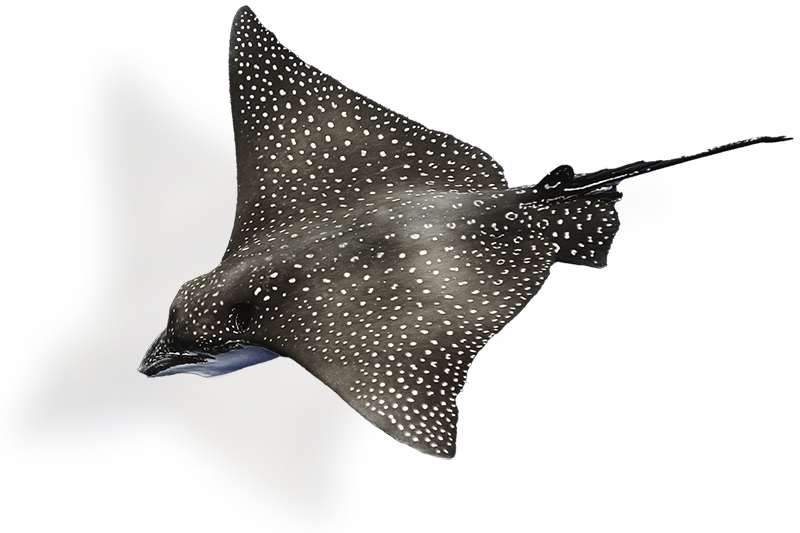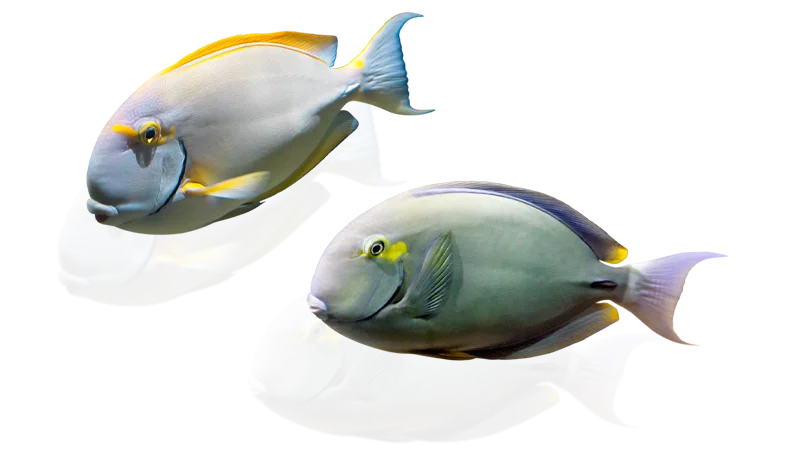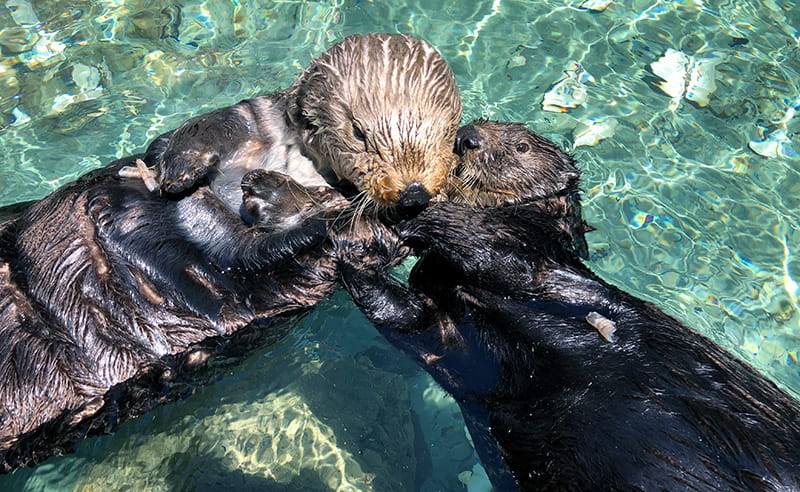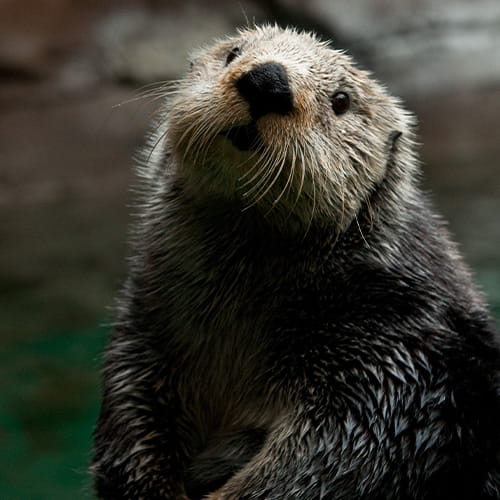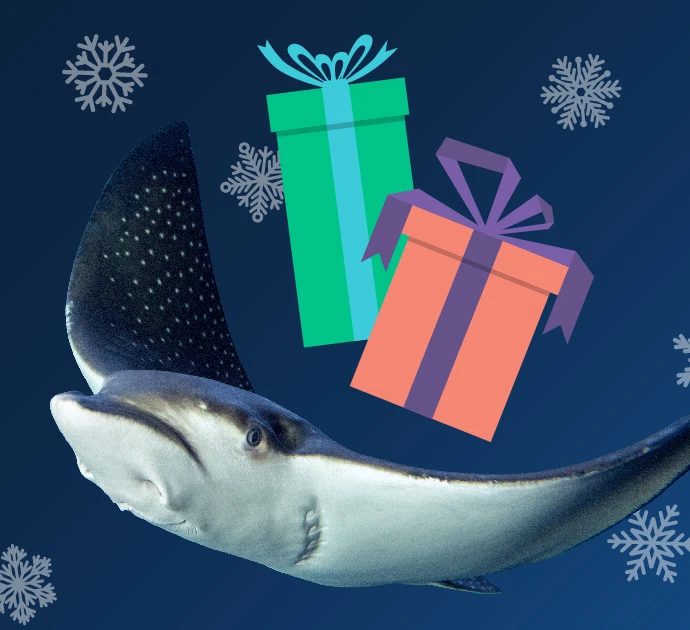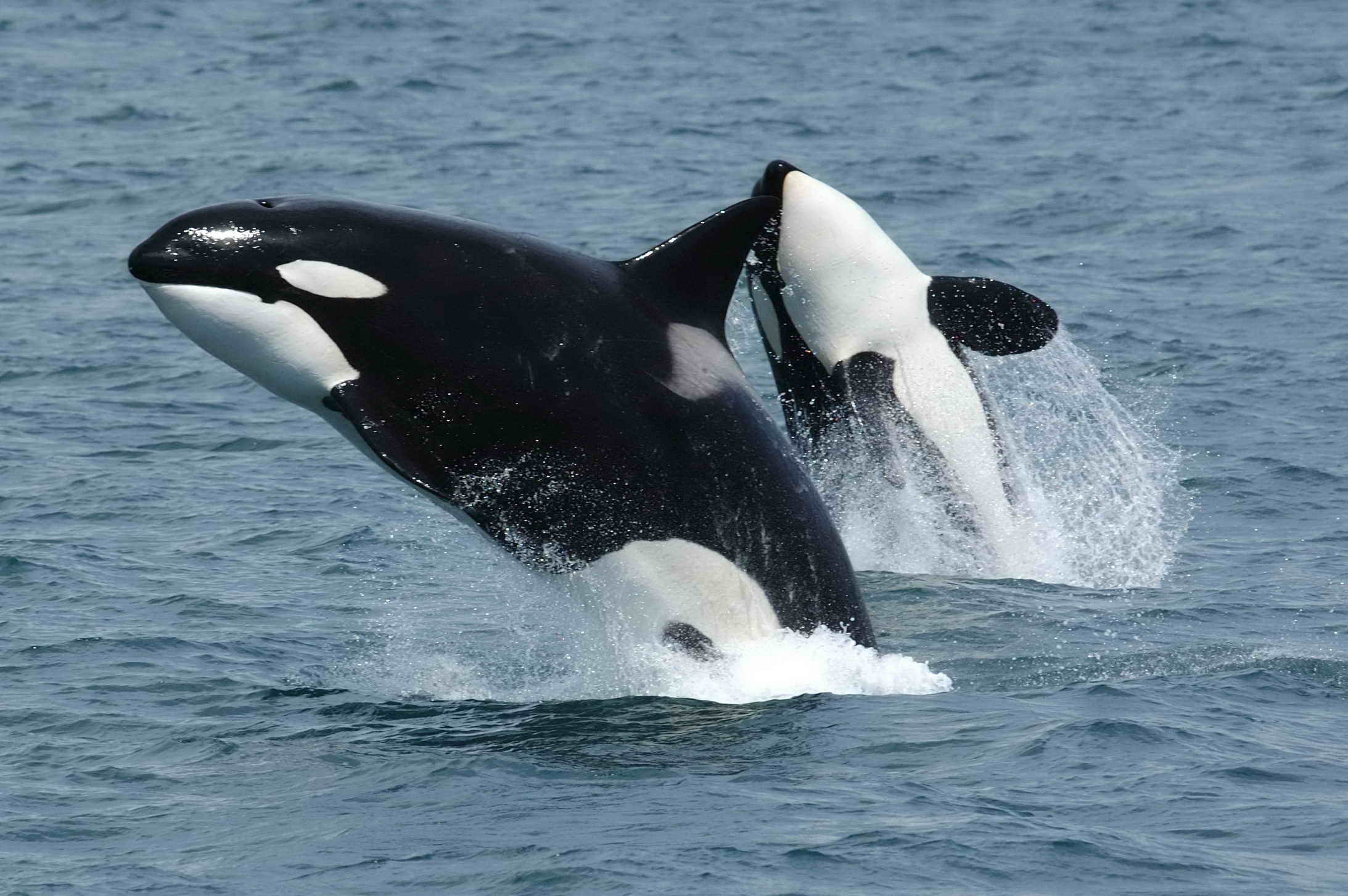
Local orcas need your help
Majestic orcas are icons of the Pacific Northwest. They need clean water and plenty of salmon to thrive. The Seattle Aquarium and our partners are working to help protect these amazing creatures. Read on to find out how you can help, and come visit us at the Seattle Aquarium to learn more.
Orcas are playful, intelligent and social animals. They make unique calls to communicate with each other. Our local southern resident orcas feed mainly on Chinook salmon and use echolocation to find food. Meanwhile, their cousins, transient orcas, have developed quiet hunting techniques to catch their prey.
The orcas seen in our local waters are part of the J, K and L pods of southern resident orcas. They have been listed under the Endangered Species Act since 2005, and the most recent count found fewer than 80 individuals in this community. This small population is at risk likely due to lack of prey, toxic pollution and vessel noise and disturbance.
Threats orcas face
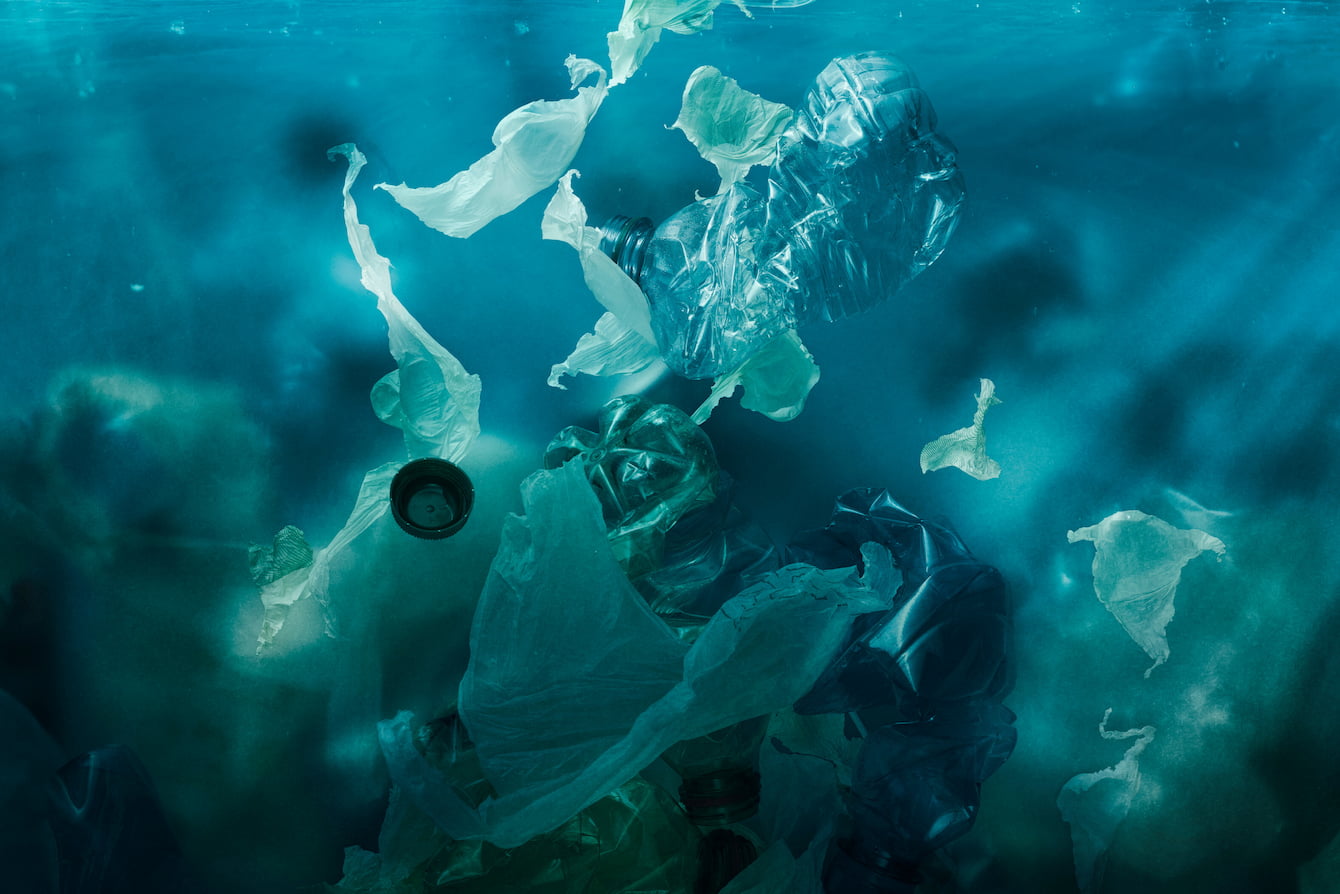
Toxic pollution
Many of the daily human activities we take for granted, such as manufacturing, agricultural runoff, driving and recreational pursuits, create by-products that can harm marine life. Whether by air or stormwater, these toxic chemicals and other pollutants find their way into Puget Sound, where they can damage habitats and decimate animal populations.
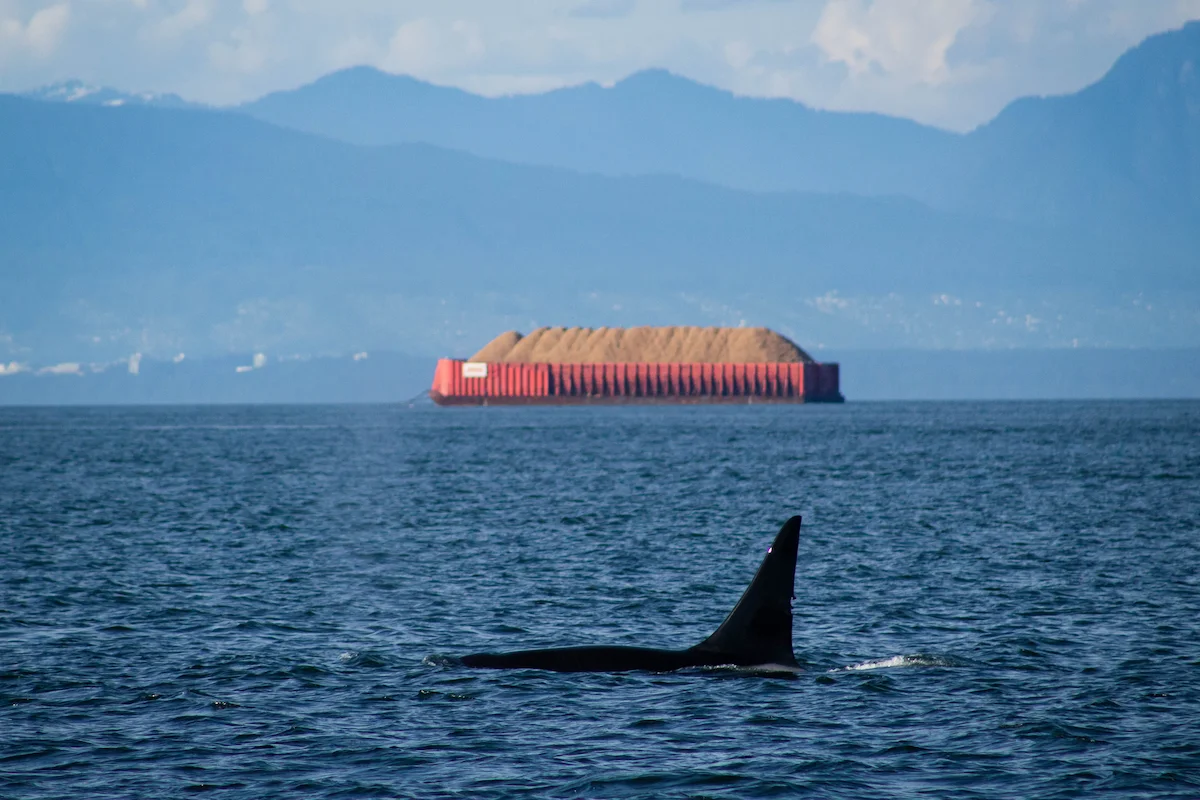
Vessel noise and disturbance
Orcas use echolocation to communicate with other members of the pod while hunting for prey. In urban areas like ours, marine vessel noise often prevents orcas from hearing each other’s whistle sounds, clicks and jaw claps that direct them to salmon. If they don’t catch salmon, they go hungry.
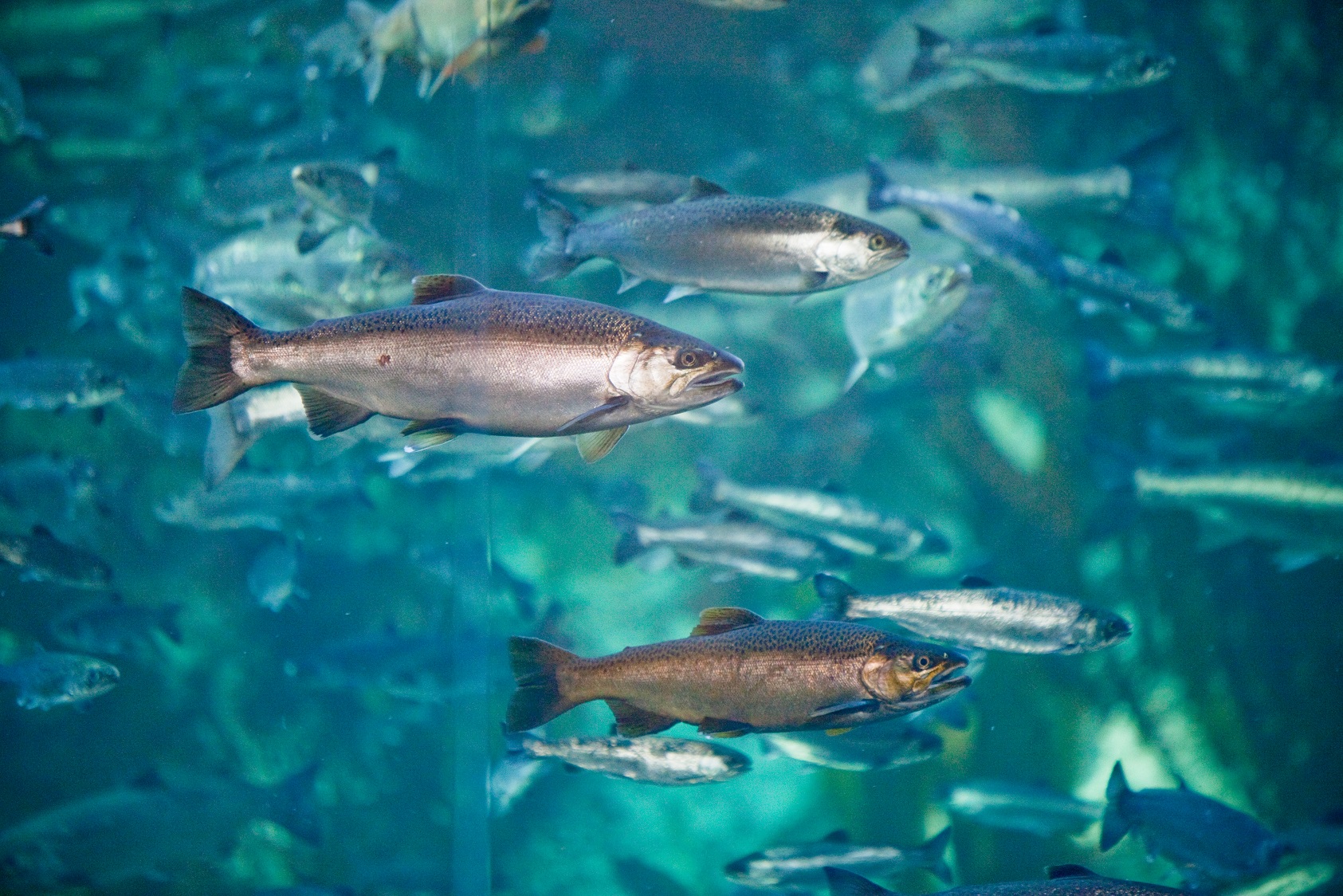
Lack of prey
Salmon face many of the same environmental challenges that threaten orcas. In Puget Sound’s food web, the salmon population is tied to the health of local orcas. Without salmon, orca health suffers. Hunger is thought to be the reason that two-thirds of orca pregnancies fail.
The Center for Whale Research on San Juan Island conducts annual surveys of the orca population.
Visit their website at whaleresearch.com for the most up-to-date information.
Take Action To Help Orcas
Follow whale-watching guidelines. If you’re out in a boat, follow all Be Whale Wise guidelines. Even better, watch whales from shore! The Seattle Aquarium is one of the sites along the Whale Trail.
Report whale sightings in real time using the Whale Report App (in addition to any reports you already do to local networks) to reduce the risk of ship strikes. If you’re out in a boat, fly a Whale Warning Flag when you see whales of any kind to alert other boaters.
Choose nontoxic, environmentally-friendly household and yard products. Even far from the water, nearly everything that goes down your drain, washes into storm drains or flows into creeks eventually ends up in the ocean.
Participate in events like Orca Action Month in June and Orca Recovery Day in October.
Take the Give Them Space pledge as an individual or as a recreational boater.
Take the actions above to help salmon! Orcas rely on salmon as their top food source.
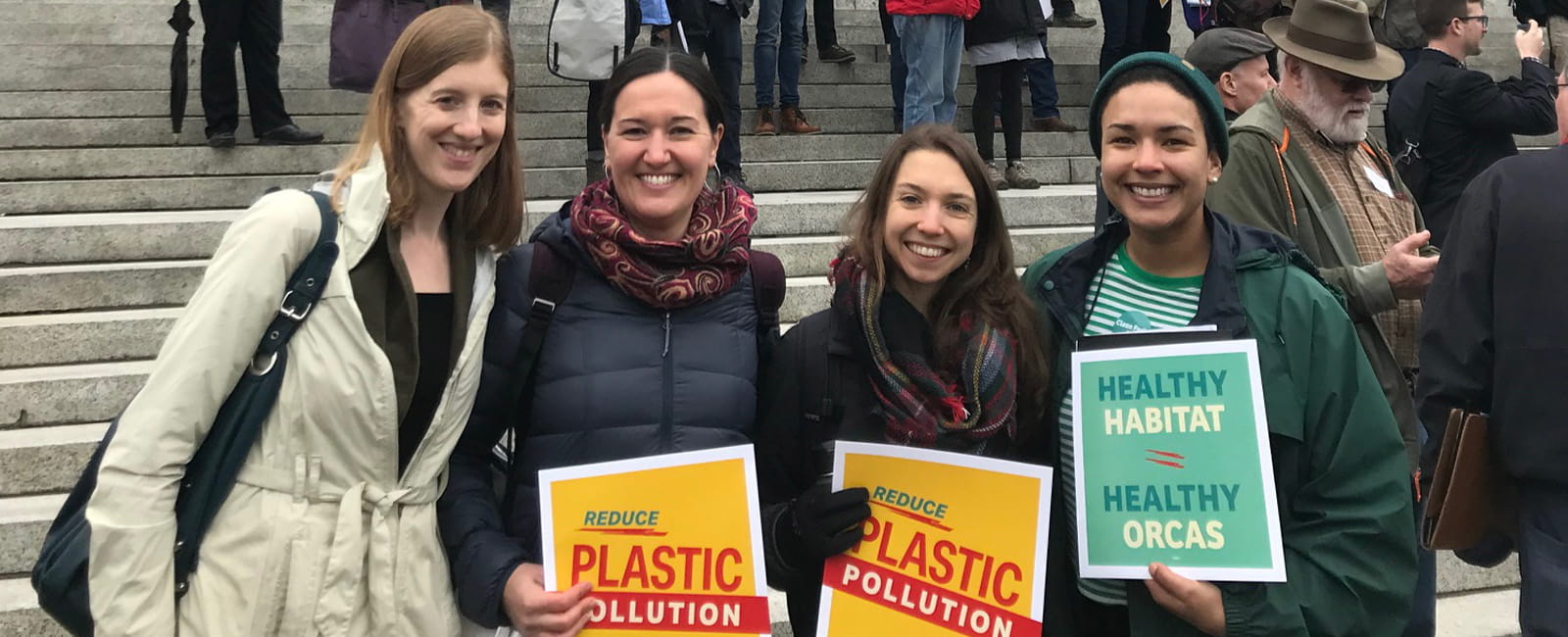
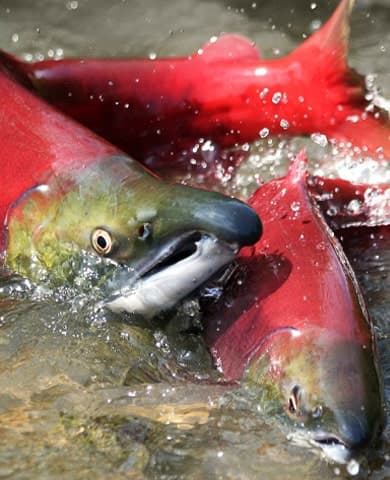
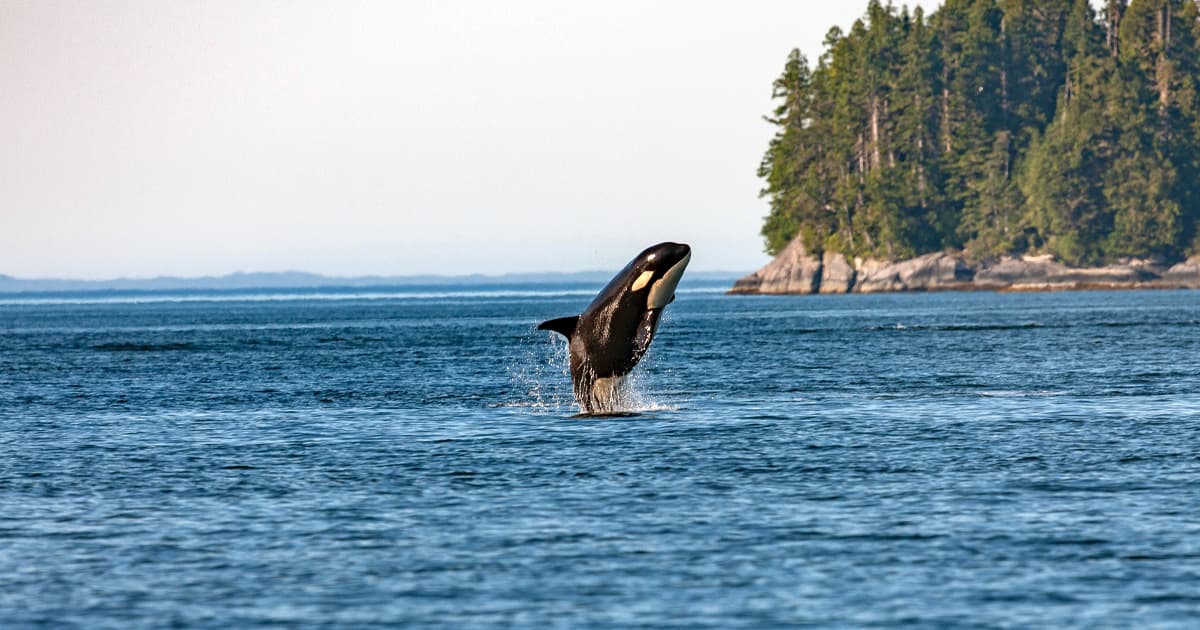
Seattle Aquarium advocacy
We are advocating for increased federal and state investment in salmon habitat restoration, including the Duckabush Estuary Restoration Project.
We are supporting federal legislation to protect marine mammals, including southern resident orcas, from ship strikes and other vessel-related impacts. We also supported state funding for Quiet Sound, a new program that will reduce underwater noise and disturbance from ships.
In 2023 we advocated for state legislation to create a 1,000-yard buffer from small vessels around the critically endangered southern resident orcas to help them forage more successfully and feed their young. We are encouraging boaters to take a pledge to protect orcas by giving them more space before these requirements take effect in 2025.
We advocated for increased critical habitat for orcas under the Endangered Species Act and efforts to reduce risks to orcas from Navy training and testing.
In 2019, all four bills we supported passed the state legislature—increasing the distance between boats and southern resident orcas, preventing toxic pollution, protecting habitat for Chinook salmon and reducing oil spill risk.
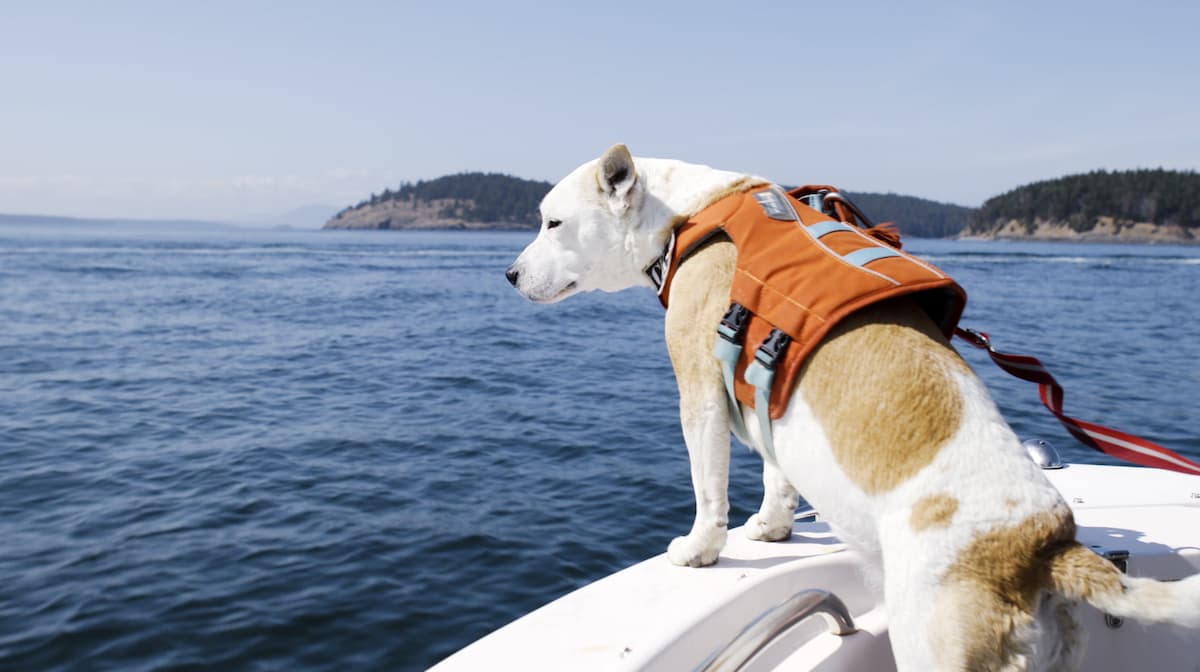
Eba + the Orcas
“You can’t make this story up…a pound dog that is out saving killer whales.”
Chris Morgan, wildlife ecologist, conservationist, filmmaker and host of the podcast THE WILD, takes us on a research vessel in the San Juan Islands to witness Eba, an orca-scat-sniffing dog. The scat tells the story of the challenges the orcas are facing—from toxicity and stress levels to reproductive health and more. Chris uncovers some brilliant work that has already been done to help orcas and what you can do to help.
Learn More
Increase your knowledge and support the many groups that are working to save the orcas – and salmon too.
American Cetacean Society, Puget Sound Chapter
Check out the local chapter of the oldest whale conservation organization, featuring a monthly speaker series in Seattle.
Be Whale Wise
Learn how to watch whales safely and responsibly.
Center for Whale Research
Celebrate nearly 50 years of orca population research and great orca photos.
NOAA Fisheries
Read the southern resident orcas and salmon recovery plans and report harassment or sightings of injured/stranded marine mammals to the NOAA Fisheries hotline at (800) 853-1964.
Orca Network
Find out where the whales are, all the latest news about orcas and their habitat, ways to get involved and more.
Orcasound
Listen in to a network of hydrophones stationed throughout the Salish Sea, habitat of the southern resident orca pods.
Orca Salmon Alliance
Discover the alliance’s work to highlight the connection between two iconic endangered species that need help: southern resident orcas and Chinook salmon.
Quiet Sound
Learn about this collaborative program to reduce noise impacts on southern resident orcas from large commercial vessels.
Save Our Wild Salmon
Work to recover abundant, sustainable runs of wild salmon to the Northwest’s Columbia and Snake Rivers, once the largest salmon-producing river system on earth.
The Whale Museum
Visit the museum in Friday Harbor on San Juan Island—or online—and adopt a southern resident orca.
Washington state orca recovery website
Track progress toward implementing the governor’s Orca Task Force recommendations.
Whale Scout
Volunteer on a habitat restoration project to protect Pacific Northwest whales through land-based conservation.
The Whale Trail
Find out where you can view whales from shore. The Seattle Aquarium is one of the first sites along The Whale Trail, established to inspire appreciation and stewardship of whales.
Wild Orca
Conservation research, advocacy and policy engagement. Learn how Wild Orca is translating science into action to save Southern Resident killer whales.
